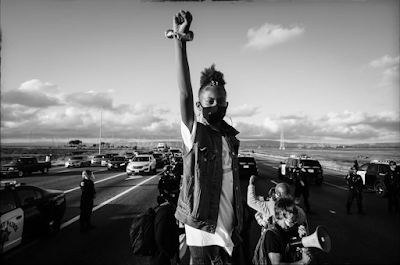In November 2022, Meta (formerly known as Facebook) laid off 11,000 workers and Twitter laid off 3,700. In January 2023, Alphabet (a parent company of Google) laid off 12,000 workers and Amazon laid off 18,000. In February 2023, PayPal laid off 2,000 workers and Zoom laid off 1,300. That’s nearly 50,000 layoffs in Silicon Valley in a three-month time period! The bottom line? Big Tech is down-sizing, significantly.
However, just a few short years ago, Big Tech was rapidly expanding. For example, in 2017, (then) Facebook and Amazon were both expanding into their second leg of development in the Belle Haven and East Palo Alto (EPA) areas. During an ongoing discussion of the #TechTakeover and subsequent gentrification, those who opposed local activists’ perspective on the topic, wrote them off as folks who were simply, “anti-development,” when in fact, the contrary was true. The argument that activists were making was that the development of an area should not come at the cost of displacing families and therefore, erasing historically Black and Brown communities in the process. In other words, activists wanted, “development without displacement.” They hoped that this mantra might help to mitigate (some of) the negative effects of gentrification (i.e. housing displacement) and give EPA a substantial chance at community preservation.
in EPA (March, 2017). Josie Lepe/Mercury
In 2018, I recall asking at a public community meeting whether or not Facebook had given any thought to having a Corporate Social Responsibility (CSR) policy, and Elliot Schrage ‘s (then Facebook’s VP of Communications and Public Policy) answer was, “We don’t have a CSR department because all departments [at Facebook] should be socially responsible.” I thought that if Facebook created a (CSR) policy, with some level of community buy-in, that this was one actionable way to reach the ultimate goal of community preservation. Activists and community members alike were aware that with new development came increased property values and increased displacement of long-time residents out of both, the Belle Haven and EPA areas. Therefore, a CSR policy wouldn’t only list the ethics/values which govern a company’s expansion into our community, it would also (for example) place limits on the Tech giant’s expansion. If not, the alternative was that we expected corporations to be socially responsible on their own and further still, to expand at whatever rate they desired (as long as they had the money to do so), regardless of the negative impacts on the community.
To contextualize the issue outside of California, in 2019, Amazon pulled out of the plan to build its headquarters in Queens, New York. It was (estimated) to bring an influx of 25,000 employees, to the proposed location. Worried about the possibility of gentrification and displacement given the scale of Amazon’s development plan, U.S. Representative Alexandria Ocasio-Cortez tweeted, “Displacement isn’t community development. Shuffling working-class people out of a community doesn’t improve their quality of life.” This fight not to have our communities erased due to the expansion of Big Tech is not simply an EPA problem – it is a problem which similar communities are facing, nationwide.
Photo: Anti-Amazon protesters before a NYC Council hearing (January, 2019). Hiroko Masuike/NYT
Now, let’s fast forward to 2023. As previously stated, Facebook (and Big Tech) is down-sizing, dramatically. Perhaps this is an indicator that the activists were right (even if for different reasons) to advocate for placing limits on Big Tech’s expansion to begin with. If we don’t limit their expansion, what happens when the company lays off thousands of their employees (as they are currently doing) and our communities are left with empty office buildings? How many jobs were locals able to secure before these layoffs began? It should be stated that as a result of activists pushing for The Catalyst Fund for Affordable Housing (a landmark deal between Facebook and Community Groups in December 2016) a Community Liaison was hired (Bernita Dillard) to create a pipeline so that the EPA and Belle Have communities would have access to jobs at Facebook. During that time, how was progress being tracked? I never saw any data in the form of Public Impact Reports (i.e., December 2016 to December 2019) on the outcome of these local hiring efforts. At the time this post was written, Juan Salazar, Meta’s current Public Policy Manager, couldn’t be reached for comment.
Photo: DeAndre Forks (Summer 2020). Protestor: S. Faraji.
All in all, not only were activists right to advocate for limiting Big Tech’s expansion (so that they aren’t displaced from their community) but also in pushing for local hiring programs, so that members of that same community have an onramp to access the wealth of Silicon Valley. Without a hardwired CSR policy and metrics for accountability, what the community has been left with are a myriad of unanswered questions (due to personnel changes) and a multitude of empty-buildings, as the nature of employment has shifted, and many now work from home. Perhaps the larger question is not whether or not the activists were right. Perhaps it is: Are activists a necessity in any community? As someone who is home-grown and has been covering the #TechTakeover in EPA for the past eight years, it is a resounding, YES! As demonstrated right here in our own beloved city, activists are absolutely necessary to create, implement and sustain positive social-change.
Kyra Brown



